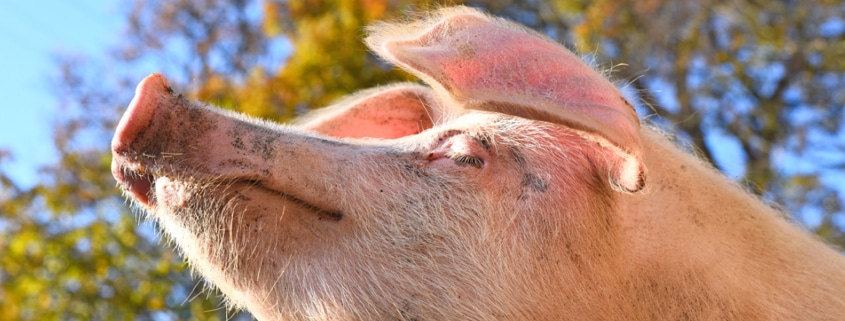Take control of how your pigs respond to heat
The impact of high temperatures on pig production will become more important over the next decades. Therefore, it matters how your pigs respond to heat and the ability to control the response can make a difference. What are you doing to take control?
Author: Gwendolyn Jones, Product Manager Anco FIT
How do grow-finishing pigs respond to rising temperatures?
Due to climate change pigs will become exposed to ambient temperatures above their thermal comfort zone more often and for longer periods. High ambient temperatures strongly affect physiology behaviour and metabolic adaptations that have a negative effect on growth performance of growing pigs. Economic losses for the US pork industry due to heat stress have been estimated at $300 million a year, with $200 million associated with grow-finish production losses.
Compared to other species of farm animals, pigs are more sensitive to high environmental temperatures, because they cannot sweat and find it more difficult to pant. The best indicators for assessing heat stress of finishing pigs are: increased respiration rate and water to feed ratio, followed by reduced feed intake, and increased rectal temperature. In heavier pigs, signs of heat stress are noticed at lower temperatures, also pigs with modern genetics are more susceptible to heat stress.
The primary consequence of heat stress is that animals reduce feed intake progressively with increased temperature, which will reduce performance. A meta-analysis carried out by da Fonseca de Oliveira et al (2018) reported that high ambient temperatures reduced the values of average daily gain (654 vs 596 g/d) and feed intake (2.14 vs 1.88 kg/d) when compared with the thermoneutral group. Others reported that whereas each degree increase in ambient temperature between 24 and 30 °C would induce a feed intake decrease of 50 g/day in pigs of 60 kg body weight, the corresponding decrease would average 80 g/day in pigs of 90 kg body weight.
However, increased ambient temperatures have also shown to have negative effects on gut function and gut integrity in growing-finishing pigs, which lead to increased levels of endotoxins in blood, as well as altered inflammation profiles. Other research has demonstrated that oxidative stress plays a role in compromising intestinal barrier integrity in heat-stressed pigs.
Building resilience to rising temperatures in pigs
Continued selection for greater performance in the absence of consideration for heat tolerance will result in greater susceptibility to heat stress. Not surprisingly, several research groups across the world are trying to find ways for enhancing the resilience of livestock to climatic variability and climate change. Resilience can arise due to lower sensitivity or better adaptability to a challenge.
Scientists are beginning to discover ways to influence the adaptive capacity of farm animals to mitigate the effects of heat stress and its negative consequences for animal welfare and farm profitability in response to rising temperatures. Identifying relevant biomarkers in animals capable of maintaining high levels of productivity during heat stress will also help to breed for climate resilient animals. The Nrf2-KEAP 1 pathway, appears to be particularly promising, as a regulatory mechanism to explore further at the cellular level, because of its dual influence on the antioxidative and anti-inflammatory response of animals.
Nutritional support to take the sting out of heat
Nutritional interventions supporting the efficiency of adaptive mechanisms represent a practical, adaptable and cost-effective strategy to mitigate the negative effects of high ambient temperatures and maintain animal productivity.
Gut agility activators are feed supplements that were specifically formulated to enhance the adaptive capacity of animals, by supporting cellular defense systems and enabling animals to adapt with more efficient responses to challenges including rising temperatures thus mitigating the impact on performance.
Author: Gwendolyn Jones, Product Manager Anco FIT



